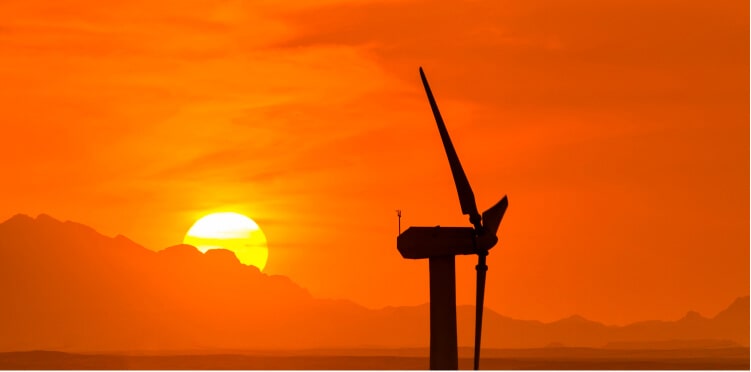Hyundai Motorstudio Senayan Park
Hyundai Motorstudio Senayan Park
Newsroom
The official news from Hyundai Motorstudio Senayan Park and a collection of innovative articles on mobility and sustainability here.
-
Energy Crisis: Explanations, Causes and Its Impacts
- Hyundai Motorstudio Senayan Park 2022.08.11
-
We all know that natural resource reserves are running low and the world is now facing a big challenge: the energy crisis. Though, what is the energy crisis?
Especially in the last two decades, energy demand has increased dramatically to an unprecedented level, only to meet the industrial sector. But energy from fossils is limited, and it has negative effects.
The limited natural resources make the supply dwindling. As a result, the prices of various products taken from the bowels of the earth are increasing from year to year.
What is an Energy Crisis?
In simple terms, the energy crisis is a scarcity of natural resources because they are continuously extracted while the regeneration cycle is unable to keep up with production needs.
The current energy crisis is an accumulation of energy problems experienced by each country. Natural resources are not renewable energy so they are limited. In short, the crisis occurs because the amount of energy reserves is insufficient.
Energy is created naturally in hundreds to thousands of years to form. That is why the energy crisis has become an old issue that is quite complex.
Governments, corporations, and individuals should work together to ensure that the use of renewable energy is a top priority, while reducing the use of natural energy through conservation programs.
Though, the majority of individuals do not think they are connected to the energy crisis, unless the price of fuel and LPG increases. In fact, the energy crisis continues to occur regardless of the efforts.
The main reason is because individuals do not understand the causes and solutions to the crisis. Especially with the population explosion in the next few years, it could be even more severe.
Causes of the Energy Crisis
Global energy consumption will increase as the population grows, and this is an unavoidable condition. Besides the population, the cause of the energy crisis can be from various factors.
1. Overpopulation
When the level of demand increases but supply decreases, a crisis will occur. Energy consumption will increase but natural resource reserves decrease. Industry requires natural resources to create products that humans need.
Increasing population means production must be increased, and this requires more resources. No industry can run without involving natural resources, and this reduces energy reserves significantly.
2. Overconsumption
The energy crisis is the culmination of the various scarcity of natural resources today, so it does not only occur in one aspect. Oil, gas, coal, water, and oxygen are examples of energy that is running low.
Regardless the resources that are being scarce, the majority causes are due to overconsumption which triggers a number of environmental problems such as pollution, greenhouse gasses, and climate change.
3. Waste of Energy
Wasting energy will lead to energy scarcity, water and oil for example. The majority of the world's population does not understand the importance of conserving energy.
Unless there are concrete steps, the energy crisis will not be resolved in the near future. Though, simple steps such as turning off the faucet when brushing your teeth or walking can save energy.
4. Natural Disasters
Natural disasters such as floods, volcanic eruptions, and earthquakes can trigger a shortage of energy supplies. Likewise with large-scale accidents such as gas pipeline explosions. Energy supply is disrupted, triggering the price to spike, which in turn triggers inflation.
5. War
Energy crises can be caused by wars between countries, with Russia and Ukraine being the latest examples that are causing gas supply problems in European countries.
6. Pandemic
The COVID-19 pandemic that hit the world has drastically reduced energy demand, resulting in limited production capacity. Once the pandemic has ended, there was a significant increase in energy demand so the production reserves were inadequate and a crisis happened.
Impact of the Energy Crisis
The growth of the world's population triggers more energy consumption, while the energy sources are currently limited and depleting in number.
The problem, utilizing various forms of energy from nature turns out to have a bad impact. Humans as beneficiaries cannot be separated from the impact, as well as nature as an energy provider.
1. Environment
Energy is produced by burning non-renewable resources. This has an effect on global natural reserves, as well as the environment. It produces gas emissions such as carbon dioxide, methane, and others.
The gas then covers the earth which prevents the sun's heat from evaporating at night. In other words, the energy crisis makes the earth warmer, thus triggering global warming.
2. Health
Gas emissions that meet oxygen make the air become less healthy. The most affected part is the respiratory system. In addition, the heat also triggers excessive stress.
3. Price
The higher the use of energy, the cost of energy production rises. The natural resources are very limited, so it is very likely that prices will increase. With constant use, the number of natural resources is decreasing every day. This situation clearly triggers prices to rise in almost all countries.
4. Politics
The energy crisis may trigger political turmoil that occurred in almost all countries. The quest for new resources often triggers political tensions between nations.
Just as politics has become volatile, social and economic aspects have also been affected. That is why, the energy crisis is not the problem of one country, but all countries with different levels of complexity.




